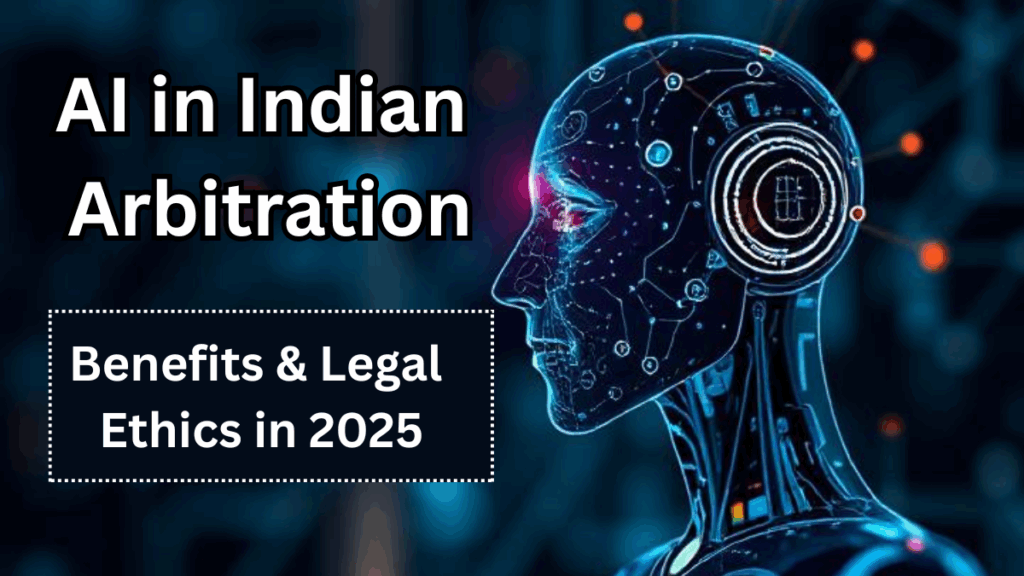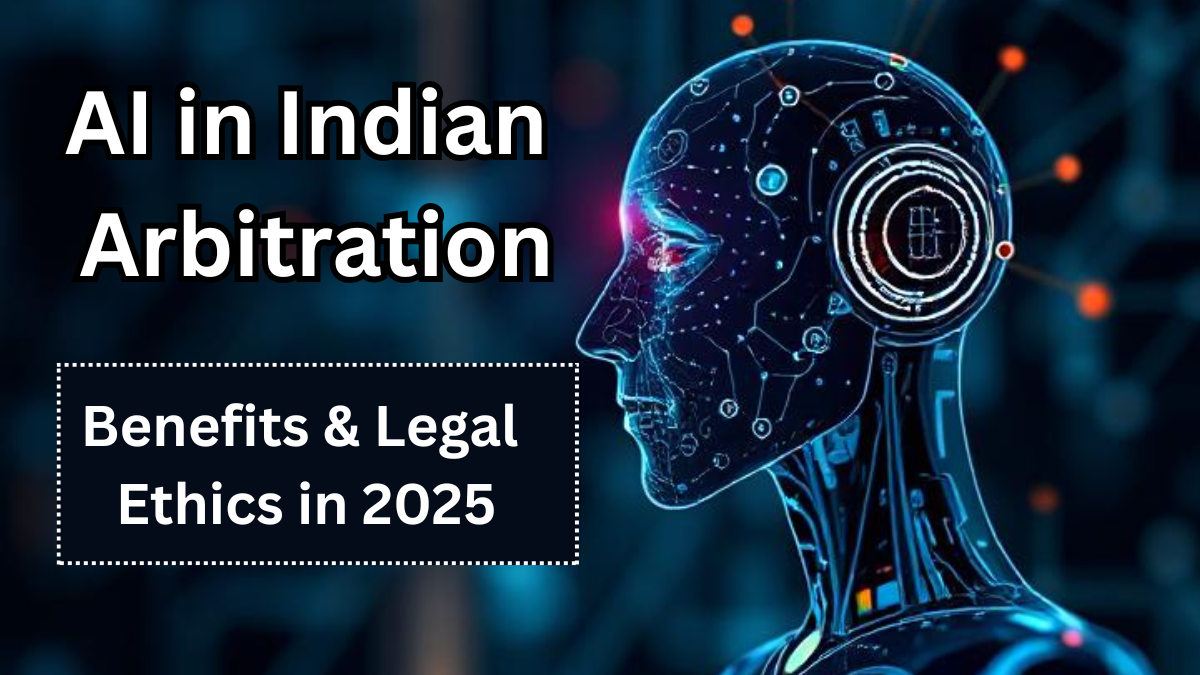Artificial Intelligence (AI) is reshaping industries worldwide, and AI in arbitration is no exception. In India, the rise of legaltech solutions is transforming dispute resolution, making arbitration faster, more efficient, and more accessible. But while these advancements bring opportunities, they also raise crucial ethical and legal considerations that cannot be ignored.
Let’s explore how AI is changing the landscape of Indian arbitration in 2025 and what it means for legal professionals and businesses.

How AI Is Transforming Arbitration in India
The integration of AI in arbitration is revolutionizing traditional legal processes. From analyzing case law to automating documentation, AI-driven platforms are speeding up arbitration proceedings and improving accuracy.
Key ways AI is being used in arbitration
-
Predictive analytics: AI helps forecast potential case outcomes based on historical data.
-
Automated documentation: Drafting agreements, claims, and responses becomes faster with AI assistance.
-
Enhanced legal research: AI tools analyze vast databases of precedents, saving time for lawyers and arbitrators.
-
Virtual hearings & e-discovery: Legaltech in India supports online hearings and AI-driven data sorting for evidence review.
Benefits of AI in Arbitration
The use of legaltech in India for arbitration offers multiple advantages:
| Benefit | Impact on Arbitration |
|---|---|
| Faster Case Resolution | AI reduces time spent on document review and research. |
| Cost-Effectiveness | Automating routine tasks lowers legal costs. |
| Improved Accuracy | AI minimizes human errors in documentation and analysis. |
| Data-Driven Insights | Helps lawyers and arbitrators make informed decisions. |
| Accessibility | Makes arbitration more inclusive through virtual platforms. |
Ethical & Legal Concerns
While AI offers undeniable advantages, its use in arbitration also raises pressing ethical and legal questions:
-
Transparency in decision-making: How does one ensure AI tools remain unbiased?
-
Data privacy: Handling sensitive client data securely is a growing challenge.
-
Accountability: Who is responsible when AI-driven recommendations go wrong?
-
Over-reliance on technology: Striking a balance between human judgment and AI insights is essential.
These concerns make it vital to establish clear regulations around AI in arbitration, ensuring technology is used responsibly.
The Road Ahead for Legaltech in India
The future looks promising. India is gradually adopting global best practices for AI integration in legal services. With proper guidelines, legaltech in India can make arbitration more transparent, accessible, and fair. However, ethical frameworks must evolve alongside technological advancements.
FAQs
How is AI being used in Indian arbitration?
AI is used for legal research, drafting documents, predicting case outcomes, and managing virtual hearings, making arbitration faster and more efficient.
What are the main ethical concerns with AI in arbitration?
Concerns include data privacy, transparency of AI decisions, potential bias in algorithms, and accountability for AI-driven recommendations.
How does legaltech improve arbitration in India?
Legaltech platforms automate routine tasks, streamline processes, and enable virtual hearings, making arbitration more cost-effective and accessible.
Is AI likely to replace human arbitrators?
No, AI is designed to assist, not replace, human arbitrators. It enhances decision-making by providing data-driven insights while human judgment remains central.
Click here to learn more
